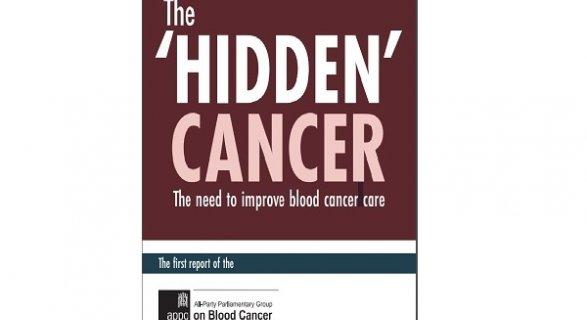Our views on launch of Parliamentary Blood Cancer report
Published on: 17 January 2018Read our response to The Hidden Cancer: The need to improve blood cancer care.

We welcome the publication of the All-Party Parliamentary Group on Blood Cancer’s (APPG BC) inaugural report The Hidden’ Cancer: The need to improve blood cancer care to which we were pleased to contribute.
It is encouraging for all those working in the blood cancer field, and indeed patients themselves, to know that there is now a dedicated parliamentary group committed to improving the care and services available for blood cancer patients and their families, as well as raising awareness of what is the UK’s fifth most common cancer.
However, while we agree with the majority of the guiding principles contained within the report – and champion many of these recommendations in our own work – we feel the report could have gone further in its ambitions. For example, we feel that there could have been a stronger call to action for Cancer Alliances to commission services from the third sector, one that goes beyond asking them to ‘look for more opportunities to involve blood cancer patients and charities in the provision of care and support’.
Because of our expertise and close connection to patients and their families, we are in a valuable position to help ease burdens within the NHS, particularly because we know the NHS does not always meet the needs of lymphoma patients – by far the largest group of blood cancer patients - especially with regard to living with and beyond a lymphoma diagnosis. Last year, we launched our own lymphoma-specific Live your Life wellbeing programme because lymphoma patients told us the Government’s Recovery Package failed to meet their specific needs. We are delighted that this programme features in the APPG BC’s report. Many other voluntary sector organisations are developing similar initiatives and, we believe, the APPG BC report should be calling for a stronger commitment to establishing formal structures that would support such collaborations.
Another area we feel the report could have explored in greater detail is how the availability of high-quality and appropriate forms of support such as counselling, psychotherapy, peer-to-peer support and buddying schemes – throughout diagnosis, treatment, and post-treatment – could significantly improve the blood cancer patient experience. While the report certainly mentions the need for psychological support services (mainly in reference to patients on ‘watch and wait’), we would like to see a more compelling call for moving towards embedding such services within the blood cancer patient pathway.
Despite these concerns, however, we look forward to seeing many of the recommendations outlined in the report pushed forward to implementation and will follow the work of the APPG BC with great interest.
Jonathan Pearce, chief executive of the Lymphoma Association
